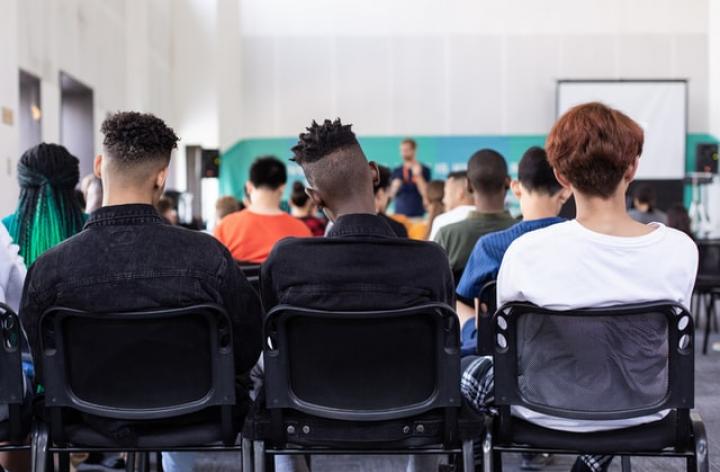Youth and Public Empowerment is the key theme of the programme of Presidency events for COP26 on 5 November. The events will centre around the commitment by the UK COP26 Presidency to elevate the voice of young people and demonstrate the critical role of public empowerment and education in climate action.

As the effects of climate change intensify over time, it is children and young people who are most likely to be exposed to its impact. However, the role of young people in our climate response has not been limited to passive victims of change. Children and young people have uncovered their power to make valuable contributions to climate action; they have spoken up about the urgency of the situation and climate change is now widely acknowledged to be a global emergency. Young climate activists such as Greta Thunberg have become household names and have inspired people across the world to participate in climate demonstrations.
Strikes are not the only way that people are making their voices heard. From public engagement initiatives, to improving access to information on climate change and the environment, climate action is being accelerated through public empowerment.
Promoting empowerment through… engagement
Public engagement is essential for creating a public mandate for climate policy. It also empowers individuals by involving them in decision making. This can be exemplified in the launch of the United Nations Youth Advisory Group on Climate Change, which aims to amplify the voices of young people and to involve them in the dialogue on accelerating action to tackle the climate emergency. The Youth Advisory Group brings together members from across the world who advised the Secretary-General on the implementation of the 2020-2021 Climate Change Strategy.
In the UK, an independent citizens assembly on climate change known as Climate Assembly UK has brought together over 100 people who are broadly representative of the population. The members learn, discuss and make recommendations on how climate change can be tackled, and their findings help shape the response of the UK government.
Promoting empowerment through… education
Education is also key to addressing climate change as it enables people to make informed decisions. In 2019, the United Nations General Assembly adopted a resolution on the implementation of education for sustainable development and since then UNESCO has urged countries to make environmental education a core curriculum component by 2025.
The Education (Environment and Sustainable Citizenship) Bill is presently at its Committee Stage in the House of Lords and would make the environment and sustainable citizenship part of the national curriculum in England. In Scotland, Learning for Sustainability is an entitlement within the Curriculum for Excellence.
"Children should be seen but not heard"
The messages of politicians in the UK suggests that the views of young people are being heard loud and clear and that there is a united front on the importance of prioritising climate action. UK Prime Minister Boris Johnson told youth activists that they are "right to be angry" and that they are paying the price for the "reckless actions of their elders". Scotland's First Minister Nicola Sturgeon has acknowledged that, "some of the strongest voices pushing for urgent global action are those of children and young people".
However, there appears to be a discord in the messages being communicated and the resulting actions; Greta Thunberg has dismissed the promises of politicians as just more "blah, blah, blah."
There is undoubtedly value in listening to the concerns and suggestions of the youth. Firstly, the message of young climate protestors tends to be direct and untainted given that, generally, they do not represent someone else's agenda. Secondly, as stated above, it is children and young people who are most likely to be affected by the risks and challenges caused by climate change and so there is a moral case for empowering them to take action.
Communication will be key in obtaining meaningful progress at COP26 and what will be vital is that the messages of leaders and the public are reflected in the series of actions to follow. Today's events are a step in the right direction towards embracing the role of all generations in shaping our response to climate change.
The content of this webpage is for information only and is not intended to be construed as legal advice and should not be treated as a substitute for specific advice. Morton Fraser LLP accepts no responsibility for the content of any third party website to which this webpage refers. Morton Fraser LLP is authorised and regulated by the Financial Conduct Authority.










